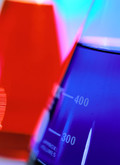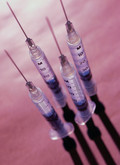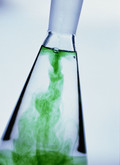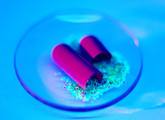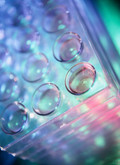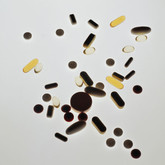Biosimilars
Interchangeability (switching and alternating) of biosimilars
The Biologics Price Competition and Innovation (BPCI) Act of 2009 established an abbreviated Biologic License Application (aBLA) pathway for the approval of biosimilars in the US. This act also established the principles of interchangeability (along with switching and alternating) with the reference product. However, the concept of biosimilarity and interchangeability for biosimilars is very different from that of bioequivalence and drug interchangeability for generics [1].
Indian Transgene sells biosimilar to German TSS Export
India-based biotech company Transgene Biotek Limited (Transgene) announced on 24 November 2011 the sale of technology for biosimilar recombinant human erythropoietin (rh-EPO) to TSS Export GmbH FZE, part of the Germany-based TSS group, for US$5 million (Indian Rupees 260 million).
National Psoriasis Foundation declares biosimilar stance
One of the leading psoriasis patient associations in the US, the National Psoriasis Foundation, has publically declared its stance on biosimilars. In an open letter to FDA, the Foundation issued a statement on the implementation of the Biologics Price Competition and Innovation (BPCI) Act of 2009 [1].
Quantitative evaluation of bioequivalence
Generics
For approval of small molecule generics, FDA requires that evidence of average bioequivalence in drug absorption in terms of pharmacokinetic (PK) parameters be provided through the conduct of bioequivalence studies. This may be done using the area under the blood and/or plasma concentration-time curve and peak concentration (Cmax) [1].
US cancer researcher calls for additional biosimilar trials
One of the leading cancer researchers in the US has called for biosimilars manufacturers to undertake additional research. In an interview with The ASCO Post, Professor Mark Pegram, MD, Professor of Medicine and Associate Director for Clinical Research, Sylvester Comprehensive Cancer Center at the University of Miami Health System, Florida, USA, said, ‘Oncologists will be concerned about the safety of biosimilars. They will want to ensure that the chemistry, manufacturing, and composition are on par with the labelled product.’
Fujifilm and Kyowa Hakko Kirin in biosimilars joint venture
Japanese Fujifilm Corporation announced on 16 November 2011 that it is once again making an agreement in the biosimilars field, this time with biotech firm Kyowa Hakko Kirin, Tokyo, Japan.
Economic evaluation of biosimilars
Biological drugs represent a fast-growing segment of the pharmaceutical market. They make up 32% of drugs in the development pipeline and 7.5% of marketed medicines and account for around 10% of pharmaceutical expenditure [1].
Acino grabs Cephalon’s Middle East and African business
Switzerland-based generics company Acino Pharma announced on 14 October 2011 that it had agreed to buy biopharmaceutical company Cephalon ’s combined Middle East and African business in a transaction worth approximately Euros 80 million.
New Amgen Enbrel patent could block biosimilars until 2028
Amgen announced on 22 November 2011 that it had been granted a new US patent on its blockbuster drug Enbrel (etanercept).
Speed to market critical in biosimilar development
For companies looking to develop biosimilars speed to market is critical, but this must not be done by sacrificing product quality, according to a report from Contract Research Organisation (CRO) Quintiles. The most successful biosimilar companies will be those who collapse their clinical, commercial, and regulatory thinking into a streamlined cohesive function in order to expedite commercialisation and optimise market access.
